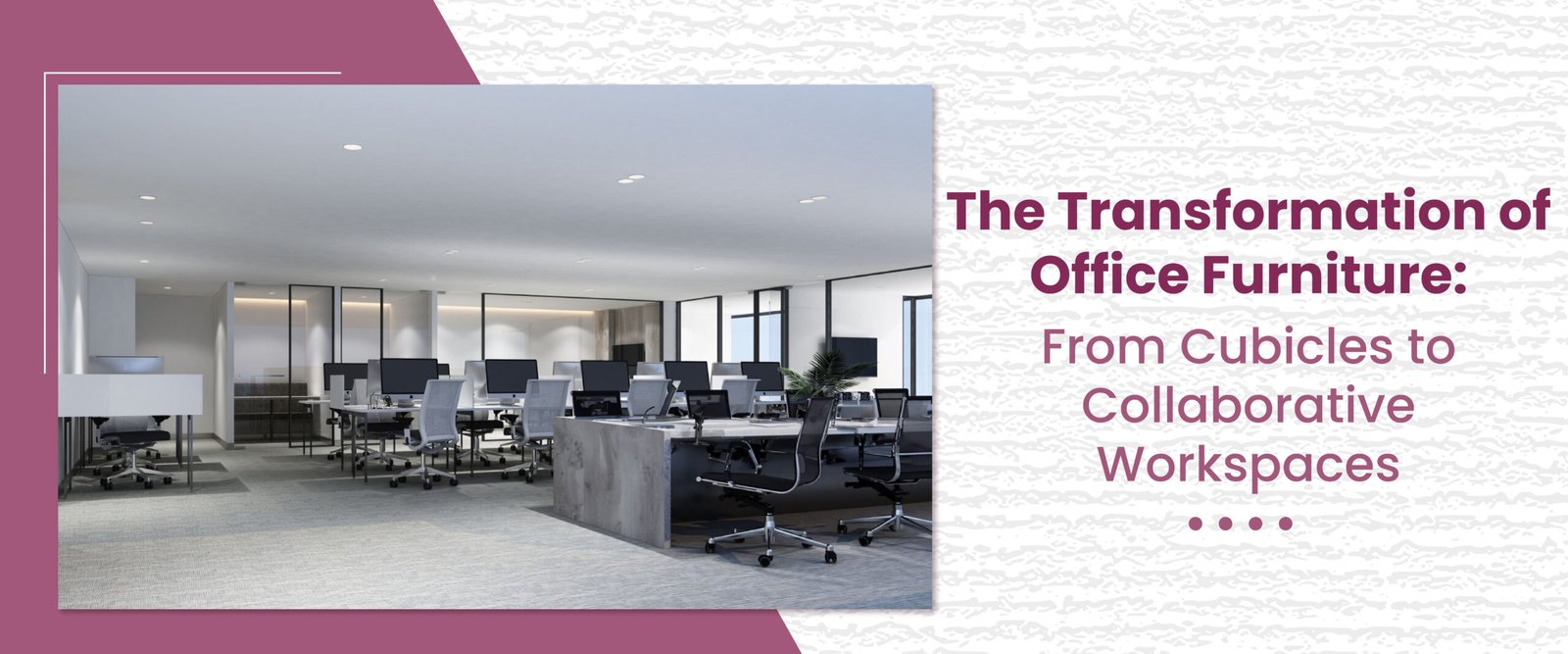
The Transformation of Office Furniture: From Cubicles to Collaborative Workspaces
In recent years, a significant shift in office furniture design has occurred. The dynamic, adaptable workspaces of today have replaced the outdated, rigid cubicles by fostering environments that value employee wellbeing, foster teamwork, and ignite creativity.
Forward-thinking companies now realize that the physical space where people work significantly influences productivity, engagement, and job satisfaction.
The journey from the traditional cubicle to today’s dynamic workspaces tells a story of changing workplace values—one where isolation is out, and teamwork, innovation, and flexibility are very much in.
A Brief History: From Cubicles to Open Spaces
In the 1960s, cubicles came out as a fix for noisy and messy open-plan offices. They gave privacy and quiet space for focused work. However, as work culture changed, these closed spaces were seen to hinder team interaction and cooperation.
By the 1990s and 2000s, open offices had arisen, with the goal of breaking down barriers and promoting engagement. Nevertheless, they had their own set of challenges such as noise and distractions—creating a demand for a balance of collaborative as well as focused spaces.
The Rise of Collaborative Workspaces
Today’s workstations are created with balance in mind, fostering teamwork while still providing quiet areas for individual attention. These collaborative rooms are adaptable to varied activities and work styles, allowing each employee to work in the way that best suits them.
The Key Features of Modern Office Furniture
Now, as we have seen the design shifts of office furniture from cubicles to collaborative workspaces, let’s look at some of the key trends that are shaping the way we furnish workspaces today:
1. Modular Furniture for Flexibility
Modular furniture is the most significant innovation in the office furniture world. These pieces can be easily reconfigured to suit different needs, whether rearranging for a team meeting or creating a quiet corner for individual work.
2. Zones for Collaboration and Focus
Modern offices are separated into distinct zones dedicated to different types of work. Collaborative zones feature shared tables, comfy seats, and brainstorming equipment such as whiteboards. Quiet zones, on the other hand, offer staff quiet, sound-proofed workspaces for intense, concentrated tasks.
3. Activity-Based Workstations
With the rise of hot desking and activity-based working, employees no longer need a fixed desk. Instead, they can choose a workstation like a collaborative table, a quiet desk, or a lounge area based on their task for the day. This flexibility requires office furniture that is adaptable, lightweight, and easy to move.
4. Ergonomic Solutions for Comfort
Nowadays, workplace wellness is a top priority rather than an afterthought. Ergonomics is a major focus of modern office furniture, which includes chairs that encourage good posture, workstations that can be adjusted, and other assets that improve comfort and lessen strain. A comfortable employee is productive; today’s offices are designed with that in mind.
5. Sustainable and Eco-Friendly Furniture
Sustainability has become a core value for many companies, and office furniture is no exception. From using recycled materials to incorporating energy-efficient designs, sustainable office furniture helps businesses minimize their environmental footprint while also appealing to employees who value corporate responsibility.
Conclusion
In summary, traditional cubicles have been replaced by modern workspaces designed for the future of work. These human-centered workspaces, along with innovation and engagement, create happier employees, benefiting companies.
Office furniture, in our opinion at Xena Design, is more than simply useful; it’s a crucial component of setting up a workspace that encourages creativity, teamwork, and worker wellbeing. Recognized as one of the leading office furniture manufacturers in Thane, we specialize in crafting sustainable, ergonomic, and adaptable furniture that fits the evolving demands of modern workspaces.
Xena Design has been assisting businesses with remodeling their workplaces into dynamic, adaptable workspaces that boost creativity and productivity for over 16 years.
Get in touch with us today at 9820185301 or email us at info@xenadesign.in to explore how Xena Design, with its innovative modular office furniture in Thane, can help you create tomorrow’s workspace.
